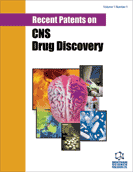Abstract
Activity of protein kinase C (PKC) isozymes plays a critical role in various types of learning and memory. In addition, abnormal functions of PKC signal cascades in neurons represent one of the earliest changes in the brains of patients with Alzheimers disease (AD) and dementia related to ischemic/stroke events. In preclinical studies, inhibition or impairment of PKC activity leads to compromised learning and memory, whereas an appropriate activation of PKC isozymes has been found to enhance learning and memory and/or to produce antidementic effects. The PKC activators not only increase activity of PKC isozymes and thereby restore PKC signaling activity but also reduce the accumulation of neurotoxic amyloid and tau protein hyperphosphorylation in the brain. These observations strongly suggest that PKC pharmacology may represent an attractive area for the development of cognitive therapeutics and agents against dementia in the future.
Keywords: Alzheimer's disease, antidementic, bryostatins, cognition, dementia, ischemia, learning and memory, protein kinase C, stroke, synapses
 2
2





















